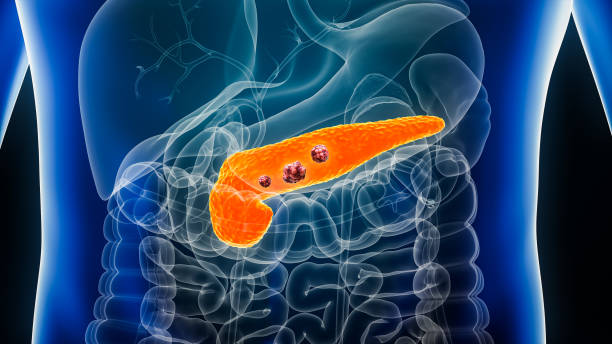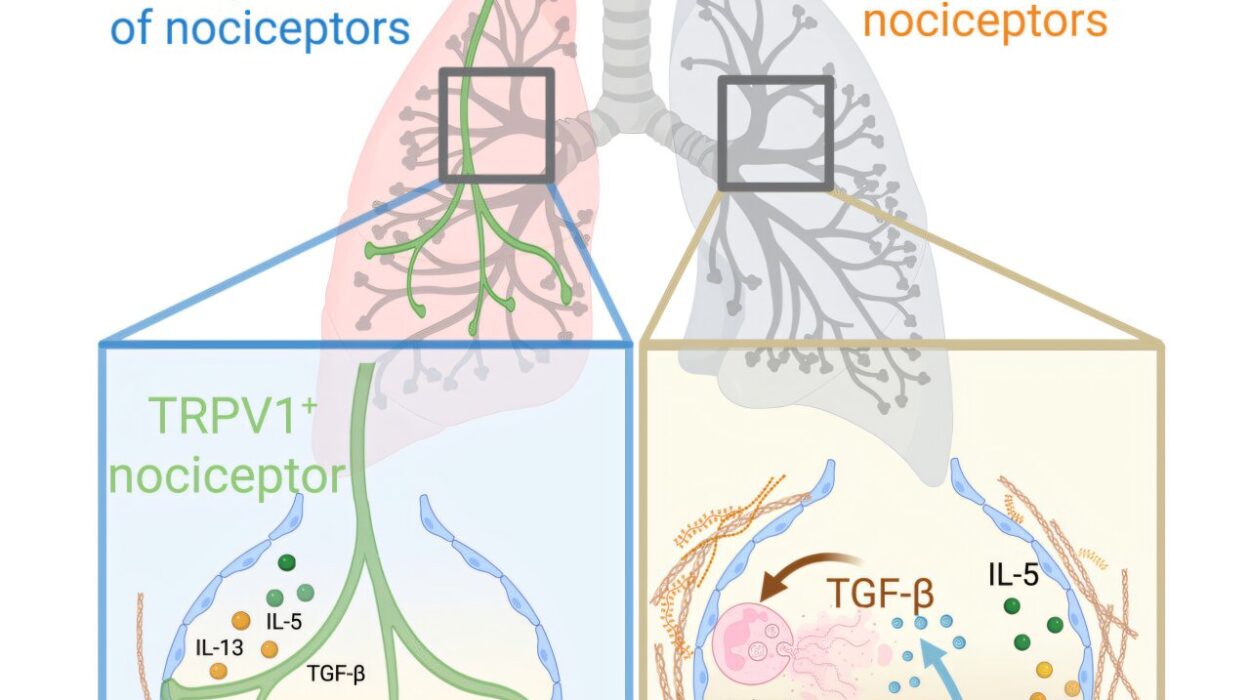Pregnancy is a remarkable, life-altering journey that intertwines biology, emotion, and transformation. It’s not just about growing a new human—it’s about how your body adapts, evolves, and communicates with you in subtle and profound ways. From the moment of conception to the final push, your body becomes an orchestra of hormones, sensations, signals, and systems. Understanding the signs of a healthy pregnancy isn’t just about checking off boxes during your prenatal visits. It’s about tuning in, listening closely, and recognizing the small whispers of reassurance your body offers as your baby grows within.
Every pregnancy is different. Just as no two women are alike, no two pregnancies are either. But amidst all the individuality, there are common threads—hallmarks of wellness and balance—that doctors, midwives, and mothers around the world recognize. Knowing what to look for can provide not only peace of mind but also a deeper connection to the unfolding miracle inside you.
The Early Whispers: First Trimester Clues
In the first few weeks of pregnancy, your body shifts into overdrive before most people even realize they’re pregnant. It’s often subtle at first—a missed period, a wave of nausea, a sudden aversion to your favorite food. But beneath those small signs is a complex symphony of biological processes.
One of the earliest and most reassuring signs of a healthy pregnancy is the consistent rise in the hormone hCG (human chorionic gonadotropin). This hormone, produced by the developing placenta, is what pregnancy tests detect. While you can’t feel your hCG levels, what you may notice are its effects: fatigue that feels like you’ve run a marathon in your sleep, tender and swollen breasts, or an inexplicable emotional rollercoaster. These are signs that your body is adjusting to support your growing baby.
Morning sickness, oddly enough, is often seen as a good sign. Though it can be unpleasant—even debilitating in some cases—nausea and vomiting are linked to rising hormone levels, particularly hCG and estrogen. While not all women experience morning sickness, its presence usually indicates that pregnancy hormones are increasing as expected.
Implantation bleeding—a light spotting that occurs when the fertilized egg attaches to the uterine lining—is another early indicator. It usually appears a few days before your expected period and might be mistaken for menstruation. However, unlike a period, it’s typically light, brief, and pink or brown in color.
Another comforting sign is the development of food aversions or cravings. Whether you’re suddenly disgusted by coffee or craving pickles and ice cream at 2 a.m., these unusual shifts are caused by hormonal changes and heightened senses. They’re a signal that your body is paying close attention to your needs and that your baby’s development is underway.
The Hormonal Surge and Emotional Realignment
Pregnancy isn’t just a physical transformation; it’s an emotional and psychological one too. And in the first trimester, the emotional signs can be just as strong as the physical ones. Hormones like progesterone and estrogen surge dramatically, impacting your mood, memory, and mental clarity.
Mood swings, for instance, are entirely normal. One minute you’re laughing; the next, you’re crying over a diaper commercial. These emotional waves are not just due to hormones—they’re also the result of the enormous psychological shift that comes with becoming a parent. Feeling emotional, introspective, or even anxious in the early weeks isn’t a sign of weakness or instability. In many cases, it reflects that your body and mind are recalibrating to support new life.
Sleep changes, too, are part of the process. While first-trimester fatigue can make you want to nap all day, it’s a healthy sign that your body is prioritizing rest and recovery as it builds the foundation for your baby’s organs, brain, and nervous system.
The Second Trimester: A Breath of Fresh Air
For many women, the second trimester brings welcome relief. The nausea fades, the fatigue lessens, and you may start to feel more like yourself again—albeit with some new physical sensations. This phase is often called the “golden trimester” because many of the early discomforts subside, and the risk of miscarriage significantly decreases. It’s also the time when some of the most telling signs of a healthy pregnancy begin to emerge.
One of the most exciting milestones is the appearance of a baby bump. Around 16 to 20 weeks, you may begin to show, especially if it’s not your first pregnancy. That small curve of your belly isn’t just adorable—it’s a visible sign that your uterus is expanding and your baby is growing on track.
Perhaps even more thrilling is the sensation of fetal movement. Known as “quickening,” these early flutters often feel like butterflies, gas bubbles, or soft tapping from within. Feeling your baby move is one of the clearest signs that things are progressing well. Each kick, stretch, and wiggle is a form of communication, a tangible reminder that your baby is thriving inside you.
In this trimester, your prenatal visits become more detailed. Your provider will measure your fundal height—the distance from your pubic bone to the top of your uterus—as a way to monitor fetal growth. You may also have the anatomy scan around 20 weeks, a detailed ultrasound that checks your baby’s organs, spine, brain, limbs, and more. Seeing a healthy heartbeat and active movements on screen provides profound reassurance.
Your energy levels often return during this time, and many women find themselves nesting, planning, and organizing. A surge in libido is also common and completely normal. This renewed vitality is another indicator that your body has adjusted well to pregnancy and is preparing for the final stages of development.
The Quiet Watchfulness of the Third Trimester
As you move into the final stretch, your body becomes more focused on preparation than transformation. The third trimester brings its own set of challenges—back pain, swelling, heartburn—but it also offers unmistakable signs that your pregnancy is progressing exactly as it should.
One of the most consistent indicators is regular fetal movement. By now, your baby has established patterns—periods of activity and rest—that you’ll begin to recognize. A healthy baby is an active one. While space in the womb becomes tighter, those rolls, jabs, and kicks should remain consistent in frequency, even if the nature of the movements changes.
You might notice rhythmic movements that last a few minutes at a time. These are likely fetal hiccups—caused by your baby practicing breathing and swallowing in preparation for life outside the womb. Hiccups are a delightful reminder that your baby is developing neurological and muscular control.
Your belly will grow steadily, and while stretch marks, itchiness, and even Braxton Hicks contractions (practice contractions) may occur, these are signs that your body is gearing up for labor. Braxton Hicks are typically irregular and painless, but they serve as your uterus’s way of toning and strengthening for the real event.
By the third trimester, your baby is developing fat stores, lung capacity, and a sleep-wake cycle. If you notice your belly moving in rhythm with music or your voice, take it as a positive sign: your baby is responding to stimuli, developing hearing, and becoming more alert.
What Your Vitals Reveal
While the physical and emotional changes are the most noticeable, some of the most vital signs of a healthy pregnancy are monitored behind the scenes. Your prenatal appointments include checks on blood pressure, weight gain, urine levels, and fetal heartbeat—all of which offer important clues.
A steady, appropriate weight gain indicates that your body is nourishing your baby effectively. While every woman gains weight differently, your provider will look for a general pattern that suggests healthy development rather than rapid or insufficient growth.
Blood pressure monitoring is critical, especially in the third trimester. A consistent, normal range suggests that you’re not at risk for conditions like preeclampsia, a serious complication characterized by high blood pressure and protein in the urine.
Listening to your baby’s heartbeat at every appointment—via Doppler or ultrasound—never gets old. A strong, regular heartbeat between 110 and 160 beats per minute is one of the most consistent indicators of fetal health. It’s the music of reassurance in every checkup.
How You Feel Matters, Too
There’s a quiet wisdom in the way pregnant women describe their experience. Often, they just “feel pregnant” or “feel like everything’s okay.” While it’s easy to dismiss these sensations as emotional or instinctual, they are just as valid as any test or scan. A mother’s intuition is powerful, and in many cases, it aligns with what medical assessments reveal.
Feeling emotionally connected to your pregnancy is another sign of wellness. This doesn’t mean you won’t have moments of doubt, fear, or anxiety—but feeling joy, anticipation, and even awe at the process are signs that you’re mentally and emotionally aligned with the experience. Mental health during pregnancy is crucial, and being emotionally in tune with your body and baby is a sign that you are coping and adjusting in a healthy way.
Appetite is another indicator. A healthy pregnancy usually involves increased appetite, with cravings or preferences that may seem odd but are part of your body’s way of communicating what it needs. Staying hydrated and well-nourished helps support everything from amniotic fluid levels to placental function.
Partners in the Journey: Medical Support and Personal Advocacy
One of the greatest indicators of a healthy pregnancy isn’t just internal—it’s relational. Having a supportive healthcare team and being your own advocate play essential roles in ensuring both you and your baby stay on the right track. Open communication, trust in your provider, and regular prenatal care form the backbone of pregnancy health.
If your provider listens, answers your questions, and involves you in decision-making, you’re more likely to have positive outcomes. That collaborative relationship makes it easier to identify problems early and address them before they become serious.
At the same time, advocating for yourself—trusting your instincts, asking questions, and seeking second opinions if necessary—is vital. A healthy pregnancy isn’t just about avoiding complications; it’s about feeling empowered, respected, and informed every step of the way.
When to Be Alert Without Being Alarmed
Of course, not all pregnancies are smooth. Knowing the signs of a healthy pregnancy also means recognizing when something feels off. Pain that doesn’t go away, bleeding beyond light spotting, sudden swelling, severe headaches, or a significant decrease in fetal movement are all reasons to call your provider.
But the beauty of being in tune with your body is that you’ll often sense when something isn’t right. Learning to listen carefully—to both the normal signals and the abnormal ones—can help you respond quickly and appropriately.
Most symptoms in pregnancy are normal, even when they’re uncomfortable. The trick is learning the difference between discomfort and danger, and that’s something your provider can help you navigate.
A Symphony of Signals and the Miracle Within
Pregnancy is a season of extraordinary change, and your body is constantly communicating—offering signs, signals, and reassurances that all is well. From the first flutter of movement to the gentle swell of your belly, from your emotional landscape to your physical well-being, everything is interconnected. Each change, no matter how small, contributes to the masterpiece of new life forming inside you.
Recognizing the signs of a healthy pregnancy doesn’t just help you feel confident; it strengthens the bond between you and your baby. It gives you a sense of control in a process that’s largely guided by biology and nature. And most of all, it allows you to embrace the journey—not just the destination.
So listen closely. Pay attention. Your body is speaking the language of life, and every sign is a verse in the song of motherhood.






